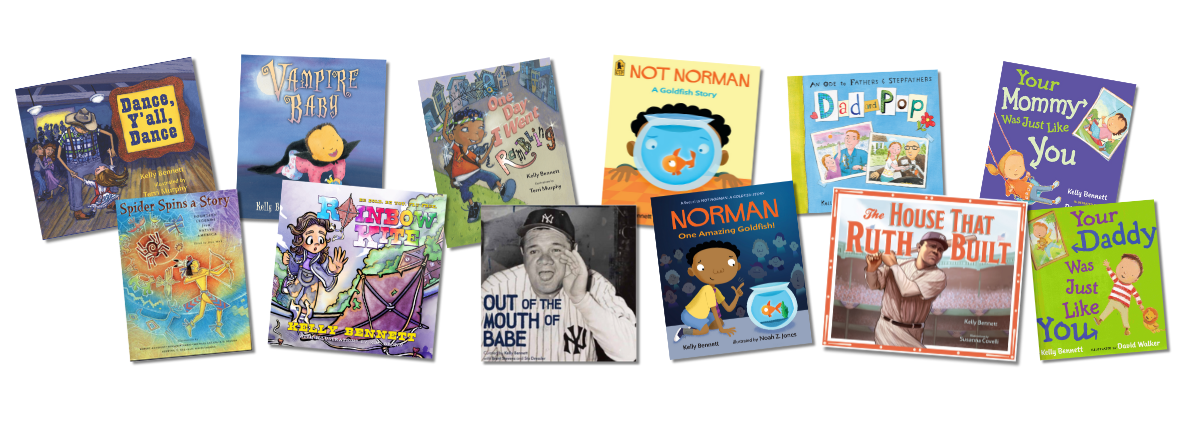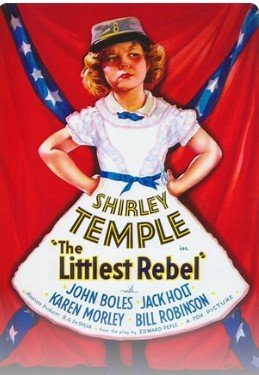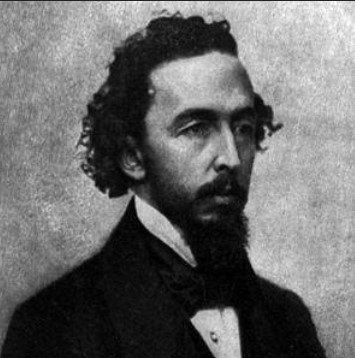Poetry Challenge #282-The Littlest Rebel
Kate Chopin, did not lead a life in keeping with prim Victorian images of her captured on film.
Born Katherine O’Flaherty, in St. Louis, Missouri on Feb. 8, 1805, Kate had, as they say, the fiery temperament of a redhead (although whether she actually was a redhead, is hard to tell), and as a young girl, she earned a reputation as the "Littlest Rebel" when she tore down a Union flag that had been tied to her front porch by Yankee soldiers.
In spite of her “wild streak” (or maybe because of it—she was involved with those suffragettes after all) Kate was popular in St. Louis society. At 19, she married Oscar Chopin, a twenty-five-year-old French-Creole businessman who whisked her off to Louisiana. Despite relatives who warned him not to, Oscar “treated Kate as an intellectually equal, and didn’t mind that she smoked, drank, and behaved as her own person.”
The Awakening was considered dreadfully immoral at the time, although The NY Times praised her writing.
Fortunately for fans of her work—unfortunately for Kate and her six children—Oscar died of Swamp fever when our Kate was 33. She returned to St. Louis, took up the pen, and wielded it boldly.
Kate Chopin is considered one of the first feminist authors of the 20th century. Her second and last novel Awakening (published in 1899; rediscovered in the 1950s), is her most famous work, as well as the most infamous. Although she never published another novel, Chopin wrote about 100 short stories and poem, too, Here’s one example:
Poetry Challenge #282
Littlest Rebel
Notice how Kate began each stanza of “By the Meadow Gate” with the same line, and ends it with an echo?
For this prompt, use all of part of the first line of “By the Meadow Gate” as the first line of your poem. And, just as she did, begin and end the stanza (or stanzas) the same way.
However, in celebration of Kate Chopin’s wild streak, unlike her sweet poem, let yours veer as far as you dare to the wild side!
Set Your Timer for 7 Minutes
Start Writing!
Don’t Think About it, Write it!
Wonder if this movie starting Shirley Temple was inspired by Kate Chopin? Might have to rewatch it and see!
Cindy Faughnan and I began this 7-Minute Poetry Challenge 2400+ days ago. Now we take turns creating prompts to share with you. Our hope is that creatives—children & adults—will use our prompts as springboards to word play time. If you join us in the Challenge, let us know by posting the title, a note, or if you want, the whole poem in the comments.
Click on Fishbowl link and sign up to receive email notifications from Kelly's blog (aka The Fishbowl):
All who subscribe, comment or share a poem will be entered in . . .
Poetry Challenge #281-Judicious Pruning
In my current silly state of mind, couldn’t resist riffing off of a Cole Porter standard* to introduce today’s prompt. After all, it’s February 2nd—Groundhog’s Day—and whether or not that frisky little fellow scurried back inside or not, Spring is just around the corner.
“Gardeners do IT!
Chef’s do IT!
Even top excec-u-ets do IT!
Let’s do it! Let’s . . . ”
There are many weak words in the English language. Anytime you want to strengthen your writing, look for them and delete them. I keep a list to refer to, and add to this list whenever I notice words I overuse.
You might start out with this list:
Cutting away the chaff is especially helpful in a poem where you don’t have many words. Each word must help convey the picture/feeling/sound that you are trying to get. Words that are more specific are stronger because they help the reader create a clearer picture.
Poetry Challenge #281
Judicious Pruning
Find a poem you’ve written that has a feeling you like. Use the following steps to see whether you can make it better.
1) Read the poem and watch for words used more than once. Can you change these words?
2) Check for each of the weak words listed above. (Feel free to add other words that you think are weak.) Delete these weak words and rewrite the line as needed.
3) Look for your nouns (People, places, or things). Is there a better word that creates a more specific picture?
4) Are you using sound? Watch for repeating sounds or see where you can add some.
5) Read your poem aloud.
6) Have someone else read your poem aloud while you listen.
Set Your Timer for 7 Minutes
Start Writing!
Don’t Think About it, Chop-Chop-Chop!
*Did you recognize which Cole Porter song inspired the riff? Send the title in the comments and you’ll be entered in the next quarter’s Winner-Winner Chicken Dinner Giveaway!
Cindy Faughnan and I began this 7-Minute Poetry Challenge 2400+ days ago. Now we take turns creating prompts to share with you. Our hope is that creatives—children & adults—will use our prompts as springboards to word play time. If you join us in the Challenge, let us know by posting the title, a note, or if you want, the whole poem in the comments.
Click on Fishbowl link and sign up to receive email notifications from Kelly's blog (aka The Fishbowl):
All who subscribe, comment or share a poem will be entered in . . .
Poetry Challenge #280-Happy Accidents
Here are two things about W. Somerset Maugham (1874-1965) He’s an ODWG (old dead white guy) author and in one of his short stories, Rain, set in the South Seas, the characters drank the dankest, smokey-maybe-a-dead-body-or-at-the-very-least-fungus smelling tea: Lapsang Souchong, constantly while it rained. (While I gagged drinking it, I do love saying it—lapsang souchong, lapsang souchong—such a nice feel in one’s mouth.) I bought some to try while reading one of his books, Of Human Bondage maybe, or Razor’s Edge—a ragged, yellow-paged copy I found on my grandfather’s shelf one summer vacation. Even through several layer of wrapping the tea stank up the house.
His snarl says it all . . .
But here’s another thing about W. Somerset Maugham, the thing I didn’t know before Googling poets born on January 24. W Somerset Maugham wrote poetry—evidently... An intensive Internet search through all the usual poetry websites only turned up one of his poems (which I could not bear to read let alone reprint) and several interesting sights of poems written in W. Somerset Maugham-ish style. But that was it. However Maugham is credited with having spoken about poetry in the most glowing terms, which in itself makes him worth celebrating. Bravo W. S. M.
“Poetry is the crown of literature…and the sublimest activity of the human mind.”
Here’s a little more: Maugham was born in Paris on Jan 24, 1874, at ten was sent to boarding school in England and then to Germany for University before returning to England for med school. He qualified as a physician but never practiced. It’s amazing how many doctors write and/or compose music…a topic for another time…
Poetry Challenge #280
Not Your Ordinary ODWG Poem
With nothing of Maugham’s poetry to copy we can write any sort of poem in any style we want, let’s do exactly that.
And, because it’s his birthday, let’s use a Maugham-ism:
Title your poem, “A Happy Accident.”
With that as your inspiration write a poem that absolutely could not have been written by an OWDG… lapsang souchong drinking or not!
Set Your Timer for 7 Minutes
Start Writing!
Don’t Think About it, Write it!
Cindy Faughnan and I began this 7-Minute Poetry Challenge 2400+ days ago. Now we take turns creating prompts to share with you. Our hope is that creatives—children & adults—will use our prompts as springboards to word play time. If you join us in the Challenge, let us know by posting the title, a note, or if you want, the whole poem in the comments.
Click on Fishbowl link and sign up to receive email notifications from Kelly's blog (aka The Fishbowl):
All who subscribe, comment or share a poem will be entered in . . .
Poetry Challenge #279-Ravenize
Maybe the cold drear winter weather causes writer’s minds to turn toward horror. Mary Shelley was born in London, Stephen King in Portland, Maine, and the great granddaddy of horror, Edgar Allan Poe, was born January 19, 1809, in Boston, Mass.
“Once upon a midnight dreary, while I pondered, weak and weary,
Over many a quaint and curious volume of forgotten lore—
While I nodded, nearly napping, suddenly there came a tapping,
As of some one gently rapping, rapping at my chamber door.
”‘Tis some visiter,” I muttered, “tapping at my chamber door—
Only this and nothing more.”
These famous lines are from the poem “The Raven”, a long, narrative poem about a raven that came to visit a man and wouldn’t leave. When the poem was published in 1845, it made Poe famous in his lifetime, but it didn’t make him much money. Many people reprinted the poem or mimicked its rhythm and rhyme with their own words.
Poetry Challenge #279
Ravenize
Now it’s your turn!
Write a poem with the same rhythm and rhyme scheme as “The Raven”.
If you’re not sure how to get the rhythm, count the number of syllables. Start your poem with “Once upon a time…”
Set Your Timer for 7 Minutes
Start Writing!
Don’t Think About it, write it!
In keeping with his life—and writing—Edgar Allan Poe’s death is spooky and mysterious. One day, he left on a business trip and . . . that’s all we know. For a treat listen to the whole story on The Dinner Party podcast.
Cindy Faughnan and I began this 7-Minute Poetry Challenge 2400+ days ago. Now we take turns creating prompts to share with you. Our hope is that creatives—children & adults—will use our prompts as springboards to word play time. If you join us in the Challenge, let us know by posting the title, a note, or if you want, the whole poem in the comments.
Click on Fishbowl link and sign up to receive email notifications from Kelly's blog (aka The Fishbowl):
All who subscribe, comment or share a poem will be entered in . . .
Poetry Challenge #278-Bayard Taylor
Our poet of the week, Bayard Taylor, deserves a round of applause—and danged if he didn’t get them back in his day.
Bayard was born January 11, 1825, in Pennsylvania. He was a journalist for the New York Tribune and a travel writer. As a poet, he was very popular. It is said that a crowd of over 4000 once attended one of his poetry readings. That was a record that stood for 85 years!
You can find many poems written by Bayard Taylor at Poem Hunter.
One of Bayard Taylor’s poems I particularly enjoyed is called Storm Song. I’ve posted it here for your your reading pleasure. Feel the foam flying free…
Poetry Challenge #279
Foam Flying Free
Bayard Taylor’s poems generally rhymed and dealt with current events and people he knew.
Think of an event you have recently attended (a class, a lecture, a party, a dinner, etc.) and write a rhyming poem about the event.
The image of Bayard Taylor above is his standard-issue author/journalist photo. The image below is of a portrait painted of him—I can see hoards coming to listen to him posed like this!
Set Your Timer for 7 Minutes
Start Writing!
Don’t Think About it, write it!
Cindy Faughnan and I began this 7-Minute Poetry Challenge 2400+ days ago. Now we take turns creating prompts to share with you. Our hope is that creatives—children & adults—will use our prompts as springboards to word play time. If you join us in the Challenge, let us know by posting the title, a note, or if you want, the whole poem in the comments.
Click on Fishbowl link and sign up to receive email notifications from Kelly's blog (aka The Fishbowl):
All who subscribe, comment or share a poem will be entered in . . .
Poetry Challenge #277-The Prophet
Today, we celebrate Khalil Gibran (1883-1931). You know the author of that dog-eared bent spined paperback entitled The Prophet? The one so oft quoted at weddings? Who hasn’t read, owned, or at least seen copy? Apparently no one ANYWHERE! Poetry Foundation called Gibran “the best-selling American poet of the twentieth century.”
“He was one of those rare writers who actually transcend the barrier between East and West, and could justifiably call himself – though a Lebanese and a patriot – a citizen of the world.”
Khalil Gibran (also spelled Kahil) considered himself an artist first, a writer second. He was born Jubran Khalil Jubran on January 6, 1883, in Bsharri, Lebanon. In 1895, when he was 12, Gibran immigrated to the U.S., along with his mother and sibling. Their surname Jubran was Americanized to “Gibran.”
Gibran early works, published in Arabic newspapers, were sketches, short stories, and poems written in a conversational style about Middle Eastern immigrant’s experience in the U.S. Gibran’s work, both art and writing, were not critical successes. Nevertheless, his plain though poetic language style made his work, especially The Prophet, hugely popular--one of the best-selling books of all time it’s been translated into more than 100 languages. Here’s a selection of the “Love” chapter:
Poetry Challenge #277
On the topic of . . .
Khalil Gibran’s The Prophet is really a collection of poetic essays divided into chapters during which “The Prophet” extols “truths” of various topics: love, marriage, children, giving, eating and drinking, work, joy and sorrow, housing, clothes, buying and selling, crime and punishment, laws, freedom, reason and passion, pain, self-knowledge, teaching, friendship, talking, time, good and evil, prayer, pleasure, beauty, religion, and death.
For today’s prompt, as an homage to Gibran, choose a topic, either from the list above or otherwise, and explore its many aspects in a poetic essay. As Gibran did in “Love” and the chapter on “Children” (excerpted below*) include the “dos and do nots” of the topic.
Set Your Timer for 7 Minutes
Start Writing!
Don’t Think About it, Write It!
*For inspiration, here is a selection from the chapter on “Children.”
Cindy Faughnan and I began this 7-Minute Poetry Challenge 2400+ days ago. Now we take turns creating prompts to share with you. Our hope is that creatives—children & adults—will use our prompts as springboards to word play time. If you join us in the Challenge, let us know by posting the title, a note, or if you want, the whole poem in the comments.
Click on Fishbowl link and sign up to receive email notifications from Kelly's blog (aka The Fishbowl):
All who subscribe, comment or share a poem will be entered in . . .
Poetry Challenge #276-Just So Kipling
Rudyard Kipling wrote many books you might recognize: The Jungle Book, Just-So Stories, Captains Courageous.
His playful, imaginative stories belie his miserable childhood. Kipling was born in Mumbai, India on December 30, 1865. When he was barely six, his parents took him to England and left him at a foster home at Southsea. After five years there, he was shipped off to a boarding school, a rough one, with lousy food, teasing, bullying, beating and other cruelties. He received the Nobel Prize for Literature in 1907.
Kipling also wrote lots of poetry: If, Gunga Din, and Mandalay. His poetry often told a story using rhyming couplets and have been set to music many times over the years showing up in jazz, ragtime, swing, pop, folk, and country music. Frank Sinatra adapted and performed the poem Mandalay.
Poetry Challenge #276
Just So Kipling
Write a narrative poem—one that tells a story—using rhyming couplets. Think of a famous person, place, or historical event and tell a story about it.
Set Your Timer for 7 Minutes
Start Writing!
Don’t Think About it, WRITE IT!
Below is your reward—a Video of Frank Sinatra singing Mandalay (the version of which was evidently banned in England because Kipling’s relatives objected to it.
Cindy Faughnan and I began this 7-Minute Poetry Challenge 2500+ days ago. Now we take turns creating prompts to share with you. Our hope is that creatives—children & adults—will use our prompts as springboards to word play time. If you join us in the Challenge, let us know by posting the title, a note, or if you want, the whole poem in the comments.
Click on Fishbowl link and sign up to receive email notifications from Kelly's blog (aka The Fishbowl):
All who subscribe, comment or share a poem will be entered in . . .
Poetry Challenge #275-Unfettered and Alive
I want to be free! Free to be! Born Free! or, if you live in New Hampshire, Live Free or Die! And thanks to Gustave Kahn, we can write free…verse!
Gustave Kahn (born Dec. 21, 1859, Metz, France—died Sept. 5, 1936, Paris), was a French poet and literary theorist who claimed to be the inventor of vers libre “free verse”.
“Vive vers libre!”
French poetry at the time had very rigid rules including the number of syllables on a line and the way the poem needed to rhyme.
Kahn’s free verse poetry however, used phrases as the basic unit to measure a line which meant the number of words or syllables could be different on each line. Each verse was a complete sentence, and the use of rhyme was optional. Here is one of Gustave Kahn’s poems entitled Three Girls on the Sea-Shore:
Poetry Challenge #275
Unfettered and Alive!
For today’s poem throw off those poetic shackles, because thanks to Gustave Kahn we can, and write freely about . . .
Freedom!
Think back on a time when you were totally and completely free—unfettered and alive a Joni put it in the song I Was a Free Man in Paris. What does that freedom feel like, taste like, smell like?
Write a free verse poem about Freedom.
Each line should contain a phrase or two and use one complete sentence for each verse. You can rhyme or not, as you choose.
Set Your Timer for 7 Minutes
Start Writing!
Don’t Think About it, Write It!
Cindy Faughnan and I began this 7-Minute Poetry Challenge 2400+ days ago. Now we take turns creating prompts to share with you. Our hope is that creatives—children & adults—will use our prompts as springboards to word play time. If you join us in the Challenge, let us know by posting the title, a note, or if you want, the whole poem in the comments.
Click on Fishbowl link and sign up to receive email notifications from Kelly's blog (aka The Fishbowl):
All who subscribe, comment or share a poem will be entered in . . .


































